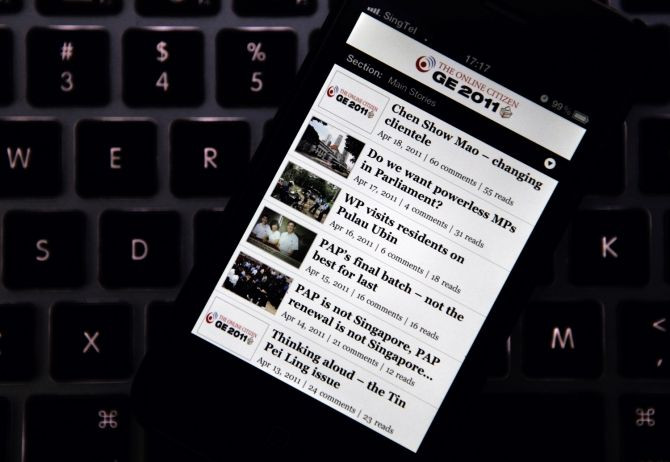Apps May Emerge as Most Powerful Ad Type

Branded mobile phone apps that are informational and practical are more engaging to consumers than apps for entertainment and gaming, according to a new study.
Indiana University researchers also confirmed that using such mobile phone apps increases both consumer interest and attitude toward product categories and the sponsoring brand.
Researchers say the study is the first to test the actual impact of branded apps on consumers. They suggest the apps for Apple's iPhone and Google's Android could be developed into a new form of ads that will be even more powerful than any current form type.
"We found a double benefit," said Robert F. Potter, director of the Institute for Communication Research at IU Bloomington.
"First, the app increases the general interest in the product category that you're trying to sell, and then the app also improves the attitude that you have toward the sponsoring brand ... and the purchase intention that you have towards the product -- your product. You have a more favorable attitude toward the brand that's sponsoring the app when you go to think about where you shop," he added.
Apps have the potential to help advertisers reach across traditional product or gender boundaries to appeal to new types of customers, researchers said.
Apps allow the company’s messages to be processed in a more profound way by consumers than traditional display ads, according to the study.
"You have a more personal connection with your mobile device than you will with a website," said Potter. "One benefit of the mobile app is that you go, you get it and you download the app -- it's now yours. It may be a deeper level of interactivity."
The Experiment
The study tested eight branded apps. Four of the brands belonged in product categories that were targeted towards men, and the other four for women.
Best Buy, Gillette, BMW and Weber were the four male-targeted brands, whereas Gap, Kraft, Lancôme and Target the female-targeted brands
The study had around 225 participants between the ages of 18 and 74, from either the U.S. or Australia. All the participants were generally unfamiliar with the experimented apps.
All participants were presented with the apps in a random order. The researchers told participants to interact with those apps however long they chose. Some random participants had their psychophysiological data recorded, such as heart-rate and skin conductance, while participants used the apps to measure arousal.
Past research showed that when people are asked to do something that requires introspection, like answering a question, their heart rate goes up. When asked to do something external, like playing a game, their heart rate goes down.
Results
"We found through the physiology measures that when you have an app that provides people with information that it is something they internalize and personalize more than the external-based focus of the game-based app," Potter said.
"You've invited the brand into your life and onto your phone. If it's an informational app, you're inviting that brand even deeper in, because now you're thinking about what's in your life and apply it to the things that the apps are presenting you with. With the experiential app, things are still kept at a distance -- you're still experiencing it on your phone and not in your life."
The apps with an informational style had more success at shifting purchase attention, than apps with an experiential style, according to the researchers’ analysis.
They said more successful informational apps included the Kraft app, which provided useful tips about cooking and entertaining guests with their food products, and Target's app, which allowed shoppers to see the week's deals and clearance items and access product reviews by scanning bar codes.
Participants were less affected by the Gap app, which enabled users to dress a virtual model, and BMW, which allowed users to configure a 3-D replica of one of its cars and take it for a virtual test drive.
Researchers also found involvement and interactions with the applications led participants to see new benefits of products targeted for those of the other gender.
Participants were kept unaware to the differences in their reaction to the various apps, and were oblivious to the qualitative difference between the two sets of apps.
What does it mean?
The very personal characteristics of mobile phones are practically extensions of their owners, and advertisers should adopt new rules of conversation with mobile phone users, researchers said.
"This study also suggests that the most successful type of app is the one that is the most intensive to produce," Potter and his co-authors wrote. "Designing an informational app that consumers find useful in their daily lives is a lot more difficult than building an experiential app by creating or adapting an interactive game: It requires developing a whole suite of tools instead of just one."
Researchers suggest that retailers looking to reach new potential customers should market their app as well as their product.
"Marketing their apps to consumers that aren't a natural target can be a way of broadening the tent," he said. "If you market apps to people who may have never heard of your product or who aren't familiar with the product category, then our research shows that if you can get them to download the app then you may be able to introduce a whole new audience to your product."
Researchers note that the biggest challenge in their proposed strategy is to make company phone applications stand out from the hundreds of thousands of others apps, which will require a major ad campaign to gain widespread interest.
Published by Medicaldaily.com



























